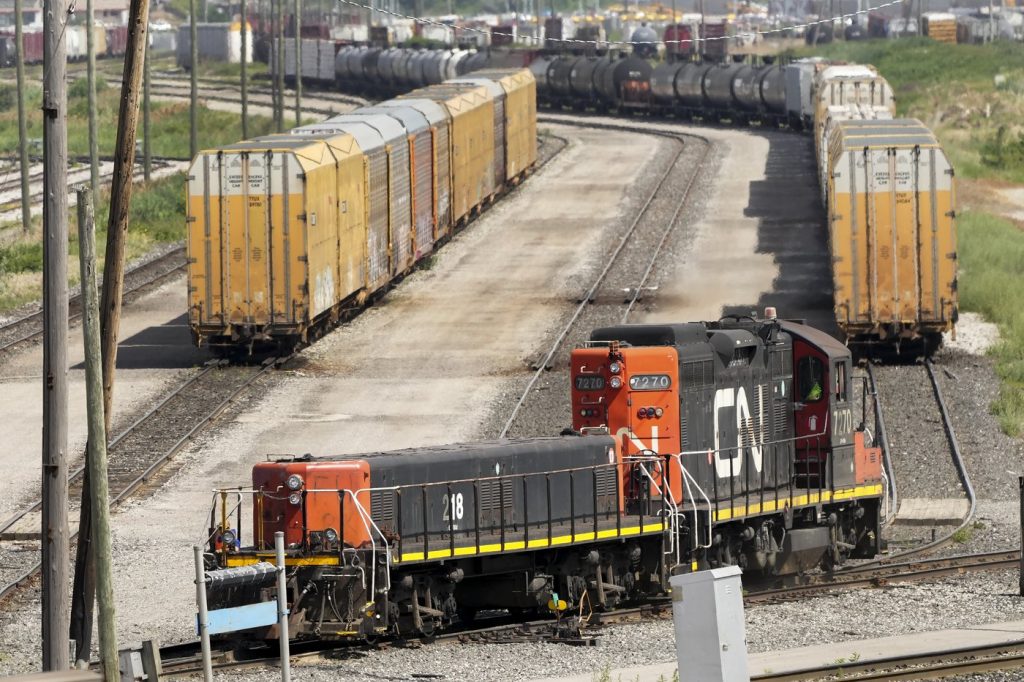On Saturday, President Donald Trump expressed his dissatisfaction with Walmart through a post on social media, urging the retail giant to absorb the additional costs resulting from his tariffs instead of passing them onto consumers. Trump’s remarks come as his administration has significantly increased import taxes, particularly impacting foreign manufacturers and American retailers. Economic experts have been skeptical of Trump’s assertions that foreign entities would bear the burden of these tariffs, warning that they could exacerbate inflation in the United States.
In a post on Truth Social, Trump criticized Walmart, which is headquartered in Bentonville, Arkansas and employs approximately 1.6 million people in the U.S. He accused the company of attempting to attribute rising prices to tariffs, insisting that Walmart, having made "BILLIONS OF DOLLARS last year," should "EAT THE TARIFFS" rather than passing the costs on to consumers. His message emphasized his desire for the retail sector to support his economic agenda, which he claims will ultimately create more domestic manufacturing jobs.
Trump’s comments reflect the challenging position that major U.S. companies face as they navigate the repercussions of increased tariffs. Walmart recently warned that the price of various products, including bananas and child car seats, could rise due to these tariffs. The company’s Chief Financial Officer, John David Rainey, noted that car seats costing $350 made in China could soon see price hikes of about $100, equating to a 29% increase, further highlighting the financial strain retailers are under.
Despite meeting with retail executives, including Walmart’s CEO Doug McMillon, earlier this year to discuss the implications of tariffs, the Trump administration moved forward with its policy changes. Furthermore, Trump has directed similar warnings to domestic automakers about price increases, even as analyses indicate that the tariffs will likely drive production costs higher.
Recent economic indicators suggest that Trump's tariff policies have put a damper on consumer sentiment, with a University of Michigan survey indicating a decline in consumer confidence. Approximately 75% of those surveyed mentioned tariffs, signaling widespread concern that inflation is likely to worsen. The ongoing trade tensions have dampened the mood of what had been a robust U.S. economy until recently.
Trump’s tariffs, which range significantly—up to 25% on imports from Mexico and Canada due to various factors, including illegal immigration—have created an atmosphere of uncertainty for both consumers and businesses. The administration has reduced the previously imposed 145% tariffs on China to 30% for a short period, yet worries remain about the impact on international trade relations, particularly with the U.K., which Trump claims will maintain a 10% basic tariff rate in future agreements.
Moreover, Trump has implemented import taxes on products ranging from autos and steel to pharmaceuticals, compounding the uncertainties faced by the U.S. economy. Federal Reserve Chair Jerome Powell has maintained steady benchmark interest rates in response to the unclear economic climate, cautioning that tariffs have the potential to hinder economic growth while concurrently leading to higher consumer prices.
On the same day, Trump reiterated his calls for Powell to cut benchmark rates, though doing so could potentially accelerate inflation. Trump has consistently downplayed inflationary pressures in the economy, contrasting Powell’s warnings about the implications of ongoing tariff policies.












